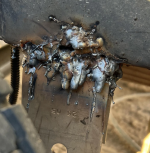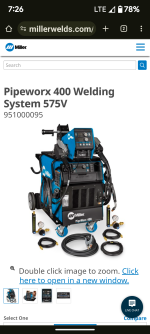GP_RZ
Well-known member
Does anyone have any personal experience with these chinese made handheld welders from Temu and the like?

Not my video, I just like how succinct it is:
Do I need a welder? No.
Could I have used one in the past when my trailer fenders started crapping out left and right? Yup.
Am I looking for an excuse to try his? Absolutely.
Do I have any idea what I'm doing? 100% not.
I don't mean to be rude but that is a piece of shat! I would like to see some work done with that.
















